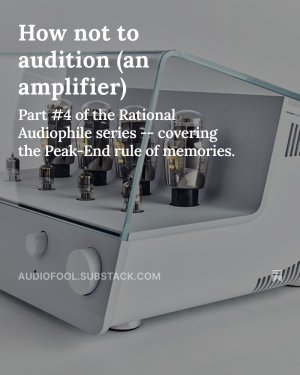Published a new blog post in my audio fool substack.
https://open.substack.com/pub/audio...n=post&utm_medium=web&showWelcomeOnShare=true
Would love your comments, feedbacks, likes or brickbats.
Cheers!
https://open.substack.com/pub/audio...n=post&utm_medium=web&showWelcomeOnShare=true
Would love your comments, feedbacks, likes or brickbats.
Cheers!



